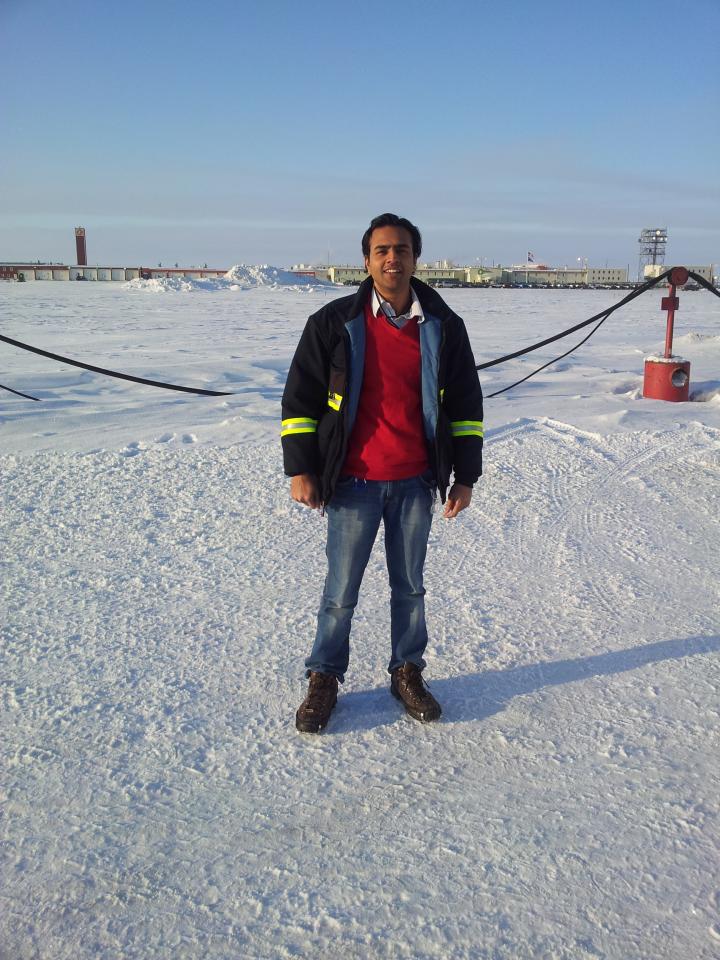During his five years in Calgary, Darshan Tadvalkar, MBA’12, experienced more than a few frigid winter days. Now working in Deadhorse, Alaska, he’s become acclimatized to its harsh climate. When temperatures reach minus 70 Celcius, with 150 km/hr winds, even the polar bears hunker down and avoid the elements. But when these carnivorous bears are on the prowl, Darshan knows that his colleagues on the oil and gas exploration project have his back. Whenever workers are outside, there is a person designated as the “bear watch” to keep the group safe. “The polar bear is the only animal in the world that sees humans as a legitimate food source,” says Darshan, who was quickly brought up to speed on the area’s unique working conditions. Darshan arrived in Deadhorse in January on an assignment with URS Corporation, a global engineering and construction firm. He’d joined the company’s Calgary office after his 2012 graduation. When URS won the bid for a British Petroleum (BP) project in Deadhorse, Darshan took on the role of on-site business manager, responsible for overseeing the financial side of the multi-million dollar project. Deadhorse, situated on the Bering Sea coast, 400 km north of the Arctic Circle, has an ‘official’ population of 25, supplemented by 2,000 to 3,000 temporary personnel working in the oil and gas fields nearby. It’s a 16-km drive from Prudhoe Bay (familiar to viewers of the TV-show ‘Ice Road Truckers’). In addition to a thriving polar bear population, the area is home to 25,000 caribou as well as other arctic wildlife. Darshan has embraced the challenge of his Arctic adventure. “I’ve had the opportunity to apply not only the business knowledge that I gained at QSB, but also the corporate social responsibility values that were ingrained in the MBA program,” he says. “Environmental protection and safety are the most important considerations on the project.” Both URS and BP are serious about respecting the local environment and its wildlife inhabitants. “Workers have to turn off their vehicles and stop for as long as it takes for a caribou herd to pass,” Darshan explains. “Sometimes that can take as long as ten hours, and any breach of policy is grounds for immediate dismissal.” Darshan typically works for four weeks straight, and then has two weeks off. While his colleagues often head to Mexico or the Caribbean, he’s been returning to Calgary to study for his CMA exams. As soon as these wrap up, he’ll be heading south, too, he says; on pelican — rather than bear — watch.




